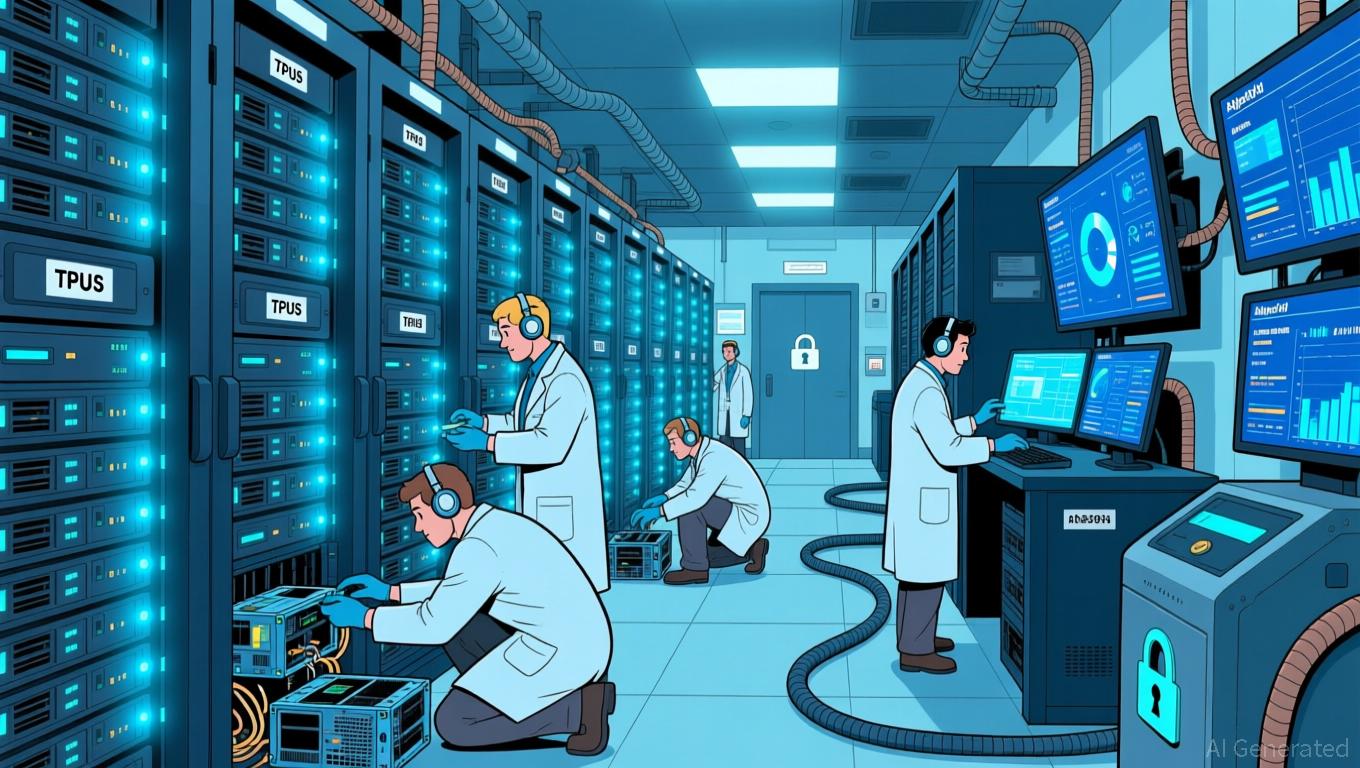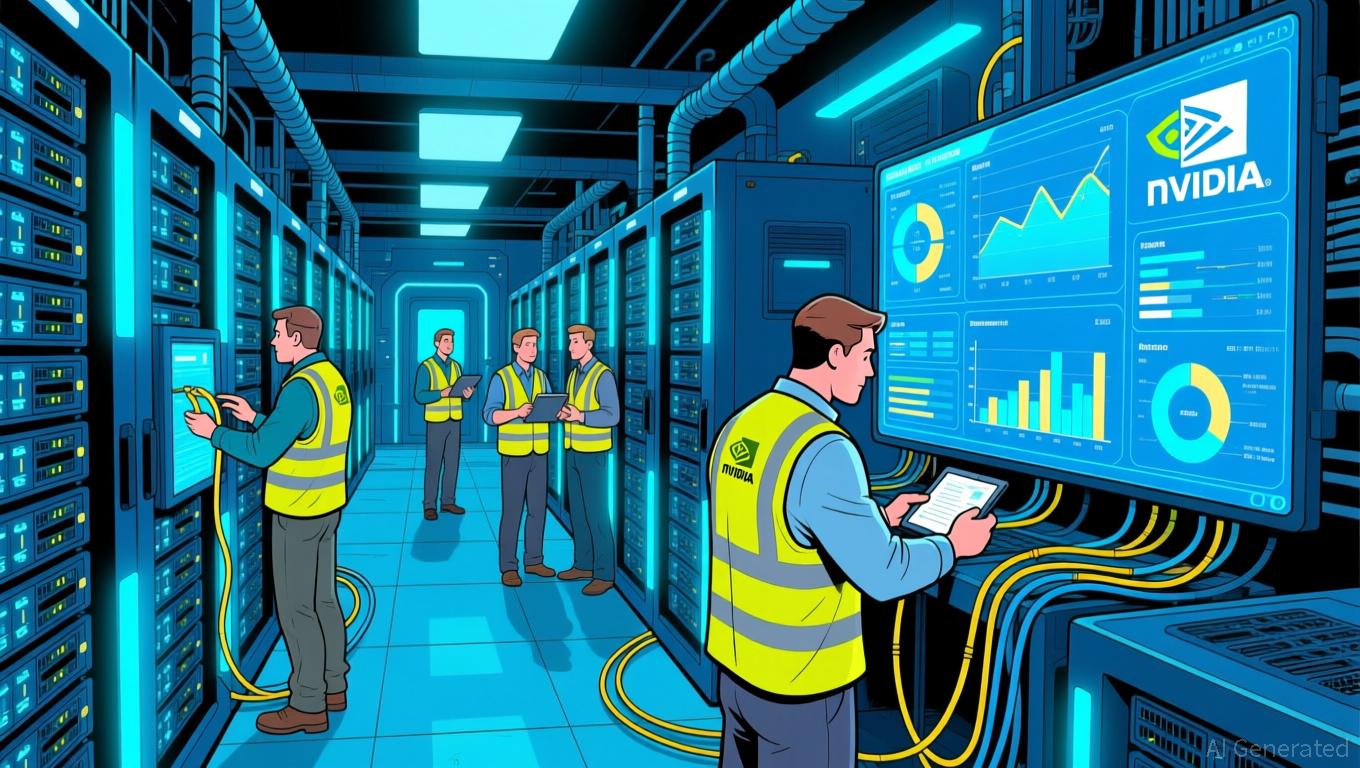Fed Officials Divided on Rate Cut Despite Pressure from Trump
- The Fed faces internal division over December rate cuts, complicating Trump's push for lower borrowing costs amid conflicting economic signals. - New York Fed's Williams supports near-term rate adjustments, while Boston's Collins dismisses urgency, reflecting broader policy disagreements. - Trump's potential influence is limited by Fed dissent, with delayed inflation data and mixed labor market trends adding to decision-making uncertainty. - Global markets and geopolitical developments will shape investo
The Federal Reserve is approaching a crucial decision in December, as disagreements within the institution about a possible rate cut grow sharper, complicating President Donald Trump’s efforts to lower borrowing costs. New York Fed President John Williams has indicated openness to “short-term” changes to the federal funds rate, while Boston Fed President Susan Collins has minimized the need for immediate action, highlighting a deeper divide among policymakers.
The main issue is whether the latest economic indicators support additional rate cuts.
Trump, who has often challenged the Fed’s independence, may find his ability to sway policy limited by these internal disagreements.

As the Fed weighs its options, the broader economic outlook remains fragile.
The results of the December meeting will have significant consequences, not just for American markets but for global financial stability as well. With the Fed caught between opposing policy views and outside influences, the direction ahead remains unclear—reflecting the complex dynamics shaping monetary policy in today’s unpredictable environment.
Disclaimer: The content of this article solely reflects the author's opinion and does not represent the platform in any capacity. This article is not intended to serve as a reference for making investment decisions.
You may also like
Meta Invests Billions in Google TPUs, Putting NVIDIA's Dominance at Risk
- Alphabet plans to sell custom TPUs to Meta , challenging NVIDIA's AI chip dominance and potentially disrupting the market. - Meta's shift to Google TPUs aims to diversify suppliers, targeting $1B+ deals and leveraging Gemini 3's TPU-optimized performance. - Alphabet shares rose 2.7% while NVIDIA fell 1.8%, reflecting market uncertainty as Google targets 10% of NVIDIA's AI revenue. - The move accelerates industry vertical integration, with Amazon and Microsoft also pursuing in-house AI hardware to compete

Solana News Update: Solana Exceeds 10 Billion USDC as Circle Drives Blockchain Scalability Expansion
- Circle mints 10B USDC on Solana since October 11, highlighting blockchain's scalability and low-cost advantages for stablecoin adoption. - SNDL Inc. renews C$100M share buyback program (10% of float), driving 1.86% post-announcement stock surge in after-hours trading. - TSA projects record 3M+ Thanksgiving travelers on Nov 30, 2025, with 17.8M+ total holiday passengers attributed to "Golden Age of Travel" policies. - Bitcoin Munari launches $0.10 presale (up to $3.00) with 53% supply allocation, targetin

Ethereum News Update: Major Institutions Fund Ethereum's Legal Battle While Individual Investors Pull Back
- Ethereum stabilized near $2,800–$2,850 after November's sell-off, with BitMine Immersion Technology accumulating 3.63M ETH (3% of supply) to become the dominant public treasury. - BitMine's $59M market injection and 70,000 ETH weekly purchases highlight its 2/3 control of public treasuries, while 24-hour trading volume surged 35% to $24B. - Crypto market cap briefly exceeded $3T amid ETF inflows ($238M for Bitcoin , $55.7M for Ethereum), but JPMorgan noted $4B November retail outflows from crypto ETFs. -
Trump’s Genesis Initiative: The Potential of AI and the Cost of Authority
- Trump's executive order launches the "Genesis Mission," a federal AI initiative to boost scientific innovation via national labs and private-sector partnerships. - The program aims to accelerate breakthroughs in medicine and energy by leveraging supercomputing resources from DOE labs and tech giants like Nvidia and AMD . - Critics highlight energy consumption risks from data centers, while market skepticism emerges as AI stocks like Nvidia face valuation pressures amid surging demand. - The mission under
